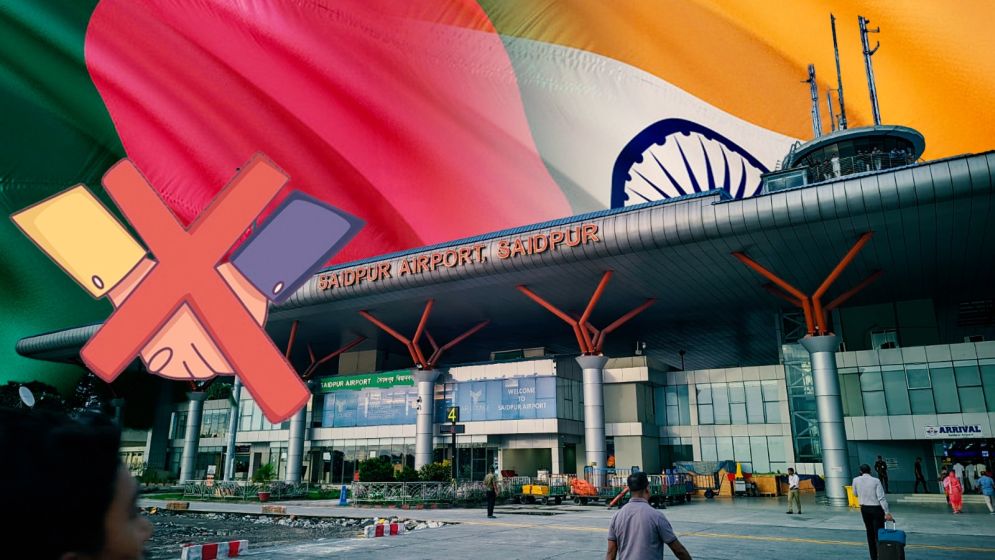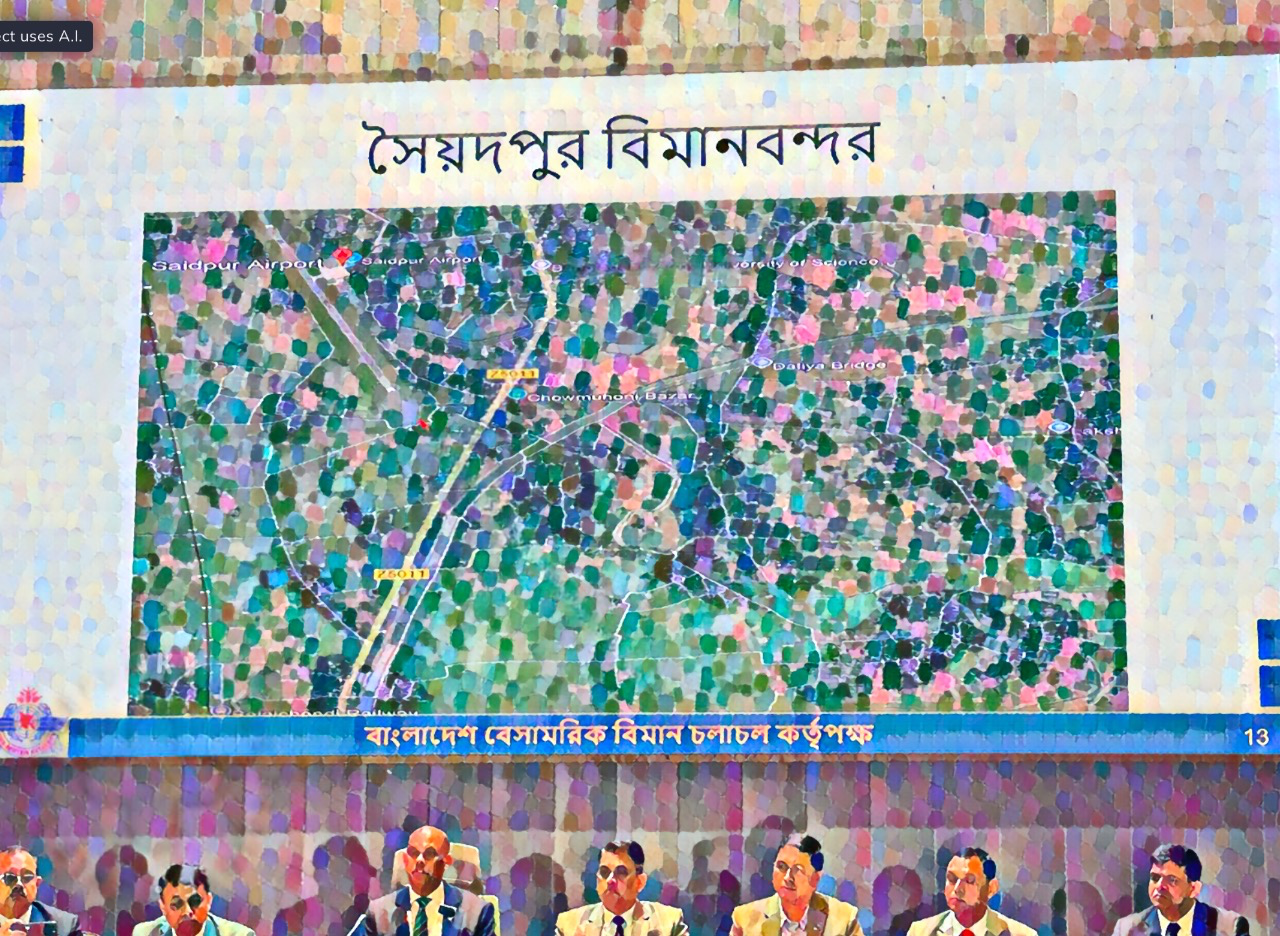Interim government seeks ADB funding for Saidpur airport modernization, bypassing Indian offer

The interim government of Bangladesh is currently in active talks with the Asian Development Bank (ADB) to modernize and transform Saidpur Airport in the country’s northern region, effectively sidestepping India's expressed interest in overseeing the project.
The modernization of Saidpur Airport has gained prominence as the interim government seeks to strengthen regional air connectivity in northern Bangladesh, with the added goal of potentially facilitating cargo transport.
This initiative is part of a larger effort to enhance the nation's aviation infrastructure, aiming to better link Bangladesh with neighboring countries such as Nepal and Bhutan, both of which are strategically close to Saidpur.
In a recent press briefing at the headquarters of the Civil Aviation Authority of Bangladesh (CAAB), Chairman Air Vice Marshal Md Monjur Kabir Bhuiyan confirmed that meetings with the ADB have been held regarding the upgrades not only for Saidpur but also for two other airports in the country.
Bhuiyan emphasized that there is significant international interest in supporting the modernization of Saidpur Airport, particularly to facilitate greater passenger and cargo flows between Bangladesh and its neighbors.
When asked about India's involvement, specifically in the context of India’s expressed interest in upgrading Saidpur from a domestic airport to an international hub, Bhuiyan was quick to address the matter. "We want to build it ourselves," he said, before abruptly concluding the press conference.
According to Bhuiyan, the project will require a total of approximately Tk 10,000 crore (about $1 billion USD).
This estimate includes the costs of land acquisition (around Tk 5,000 crore) as well as the construction of new terminal facilities and other modernization efforts.
The plans are ambitious, aimed at transforming Saidpur into a regional aviation hub capable of handling increased passenger traffic and fostering economic ties with neighboring countries.

Regional dynamics
The conversation around Saidpur’s potential upgrade highlights broader regional dynamics.
In 2023, Indian High Commissioner Pranay Verma visited CAAB and expressed India’s interest in not only financing the development of new airports in Bangladesh but also assisting with the capacity expansion of existing facilities.
India’s proposal includes providing training for Bangladeshi aviation personnel and offering financial support via lines of credit for airport development projects.
For years, the expansion of Saidpur Airport, a key regional gateway in northern Bangladesh, has been mired in indecision and delays, with successive governments failing to move forward on plans to modernize the facility.
Under the previous administration, a preference for Chinese and Japanese contractors for similar airport projects left little room for the timely awarding of contracts, contributing to the stagnation of the Saidpur expansion.
Despite its strategic location, Saidpur Airport has long remained a domestic hub, handling only about 30 flights daily on the Dhaka-Saidpur route.
But recent discussions reveal broader geopolitical and economic factors at play, as the current government grapples with balancing regional interests while navigating shifting international relations.
Verma, earlier raised concerns with Bangladeshi authorities about the continued delays in Saidpur’s expansion.
India had previously offered to finance the project through a line of credit—a development that seemed to stall after the previous government’s reluctance to award the work.
The project, which would have included expanding the runway and enhancing terminal facilities, was seen as crucial for bolstering regional connectivity, particularly to neighboring Nepal and Bhutan.
But amid strained diplomatic ties between Bangladesh and India, the current administration, led by Nobel Laureate Dr Muhammad Yunus, has turned to other international partners.
The government is now in talks with Germany for assistance in expanding Shah Amanat International Airport in Chittagong, a significant shift away from the once-close cooperation with India in the aviation sector.

What the modernization of Saidpur
airport entails
Saidpur Airport, which began as a domestic terminal in 1979, is the northernmost airport in Bangladesh.
To transform it into a regional hub, the existing runway—currently 6,000 feet long—would need to be expanded to 12,000 feet to accommodate wide-body aircraft and enable direct flights to international destinations.
However, despite repeated promises to upgrade the facility, the project has been hindered by funding shortages exacerbated by the COVID-19 pandemic.
The CAAB has estimated that over Tk 5,000 crore (roughly $475 million) would be required just for land acquisition and runway expansion.
The government's recent efforts to increase Saidpur's terminal capacity from 310 to 670 passengers, at a cost of Tk 312 crore, demonstrate some progress, but officials acknowledge that the runway expansion remains a critical hurdle.
The delays have led to growing frustration, especially from neighboring countries such as Nepal, which has long pushed for improved air connectivity with Bangladesh.
In 2022, Kathmandu formally proposed regional air links, including routes from Bhadrapur and Biratnagar to Saidpur, along with a visa-on-arrival facility for Bangladeshi visitors.
In December 2022, during a meeting between the Indian High Commissioner and Bangladesh's Foreign Minister AK Abdul Momen, India emphasized the importance of resuming the Guwahati-Dhaka air service.
India also highlighted the need for direct air connectivity between Guwahati and Sylhet.
Bangladesh and India have had an air services agreement in place since 1978, and as of 2023, India has committed a total of $7.3 billion in loans to Bangladesh through three lines of credit.
Of this amount, approximately $1.2 billion has been disbursed, representing 16.6 percent of the total pledged, according to a September 2022 update from Bangladesh's Economic Relations Division.
—-

